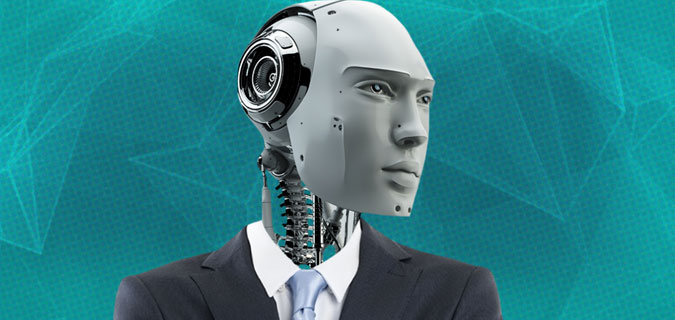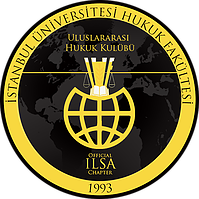
Caner Yeşil
The route of technology is drawn by the needs of humankind. This has been a given fact since we had learned how to control fire. On the other hand, law follows this path with a distance, cautiously. Every judicial system prefers to be dynamic. However, it is always difficult to move for big organisms, they all have slow reflexes. Beyond its size, there is also a significant fact about law that it is conservative.
There might have been a leap-forward step in the UK. A robot-judge algorithm was created; the more interesting part of this Project was the moment when researchers showed the algorithm some cases in European Court of Human Rights’ jurisdiction. 79% of the decisions made by the algorithm matched with the Court’s decisions. (2017) Studies continue to work on the algorithm to make it more functional. However Dr. Nikolaos Aletras from the project does not agree with the idea that robots may take over the judges’ vacancies, but he claims that the time for the algorithm to reach the level of efficient evaluation of the given facts in a case is close.[i]
Just imagine a robot-judge in charge: First we should notice that this robot would reach not just the legal codes, bylaws and jurisprudences, beside them it is going to reach all of the online images, state records, health reports, social media accounts etc. Secondly, this robot will have a full independency from holidays, humanistic excuses, judicial disqualification etc. The robot may accelerate all of the procedural stages so it can finish the whole case within a trial: Justice comes with a light speed!
The difference between artificial intelligence and standard computers is self-learning. Basically, robots can train themselves. With experience, these robot judges or lawyers would be more irreproachable such as “AlphaGo Zero” of Google. AlphaGo Zero is an artificial intelligence that specialized in Go. After a while, it learns to play simply by playing games against itself, starting from completely random play. In doing so, it quickly surpassed human level of play and defeated the human champion. Likewise, there is no need to years of legal experience, it may be possible in some online hours. Is it possible to found a check & balance system on artificial intelligence? Besides Asimov’s three rules[1], UN has actions to regulate robotic and more. There are international meetings in Washington and other cities. It is clear that the global steps need to be taken, but shouldn’t legal experts be more quick and effective?
From another perspective, robots should not be our opponents. In today’s world, computer simulations are widely used for educating young engineers, scientists etc. In time, the robot may be used as a tool in moot court, the parties (plaintiff and defendant) and the universities may take advantage of having a robot.[ii] Moot courts and opportunities to practice law in law faculties are the main deficiencies of European law education. Could artificial intelligence be the solution?
The Robot Judge research, very first example of its kind, may also enlighten the legal reasoning habits of the judges. For instance, it is seen that most of the judges in the Supreme Court apply legal positivism to the cases; some of them adopt more radical approaches. The big question here is the procedural rules- which are the products of the hundreds of the years- can be transformed into a systematic consistency what the algorithm needs? Is there a formula of conscience? To be clear, a decision made by a robot on a human rights violation case makes an unpleasant irony visible and bringing it to in front of us.
Besides the robot judge research, we need to mention the two artificial intelligence lawyers. First, ROSS, the world’s first artificially intelligent attorney; powered by IBM, recently landed a position at New York law firm Baker & Hostetler(one of the largest law firms of the US and the World, employs 900+ lawyers) handling the firm’s bankruptcy practice. [iii]You can contact with ROSS through the website: rossintelligence.com
The machine is designed to understand language, provide answers to questions, formulate hypotheses and monitor developments in the legal system.
Second, DoNotPay[iv]. DoNotPay is developed by a British teenager and currently available in the UK and New York. It is accessible through the website: donotpay.com It gives a possibility to get parking fines back in less than 30 seconds. DoNotPay works through a chat window, using a friendly, easy-to- understand language, thus people choose to consult it instead of consulting to a 100 years old-grey haired institution.
In the light of all these inventions, it seems that the road of technology is passing by law. Technological increasing of developments in the field of law should make the lawyers to stop for a second and think. It is true that there are various problems and obstacles in the law, especially in the trial periods. But when we return to the proposition that the route of technology is drawn by the needs of humankind, did we reach the point where there is a need for artificial intelligence in law?
1) A robot may not injure a human being or, through inaction, allow a human being to come to harm. 2) A robot must obey the orders given to it by human beings, except where such orders would conflict with the First Law. 3) A robot must protect its own existence as long as such protection does not conflict with the First or Second Law. (I, Robot-Isaac Asimov, 1942)
[i]http://www.legalfutures.co.uk/latest-news/robot-judge-ai-predicts-outcome-european-court-cases (24.11.2016)
[ii] http://www.hukukmedeniyeti.org/haber/9546/robot-hakimler-cagi/ (25.11.2016)
[iii]http://www.dailymail.co.uk/sciencetech/article-3589795/Your-AI-lawyer-IBM-s-ROSS-world-s-artificially-intelligent-attorney.html (25.11.2016)
[iv] http://www.bbc.com/news/technology-36650317 (25.11.2016)

